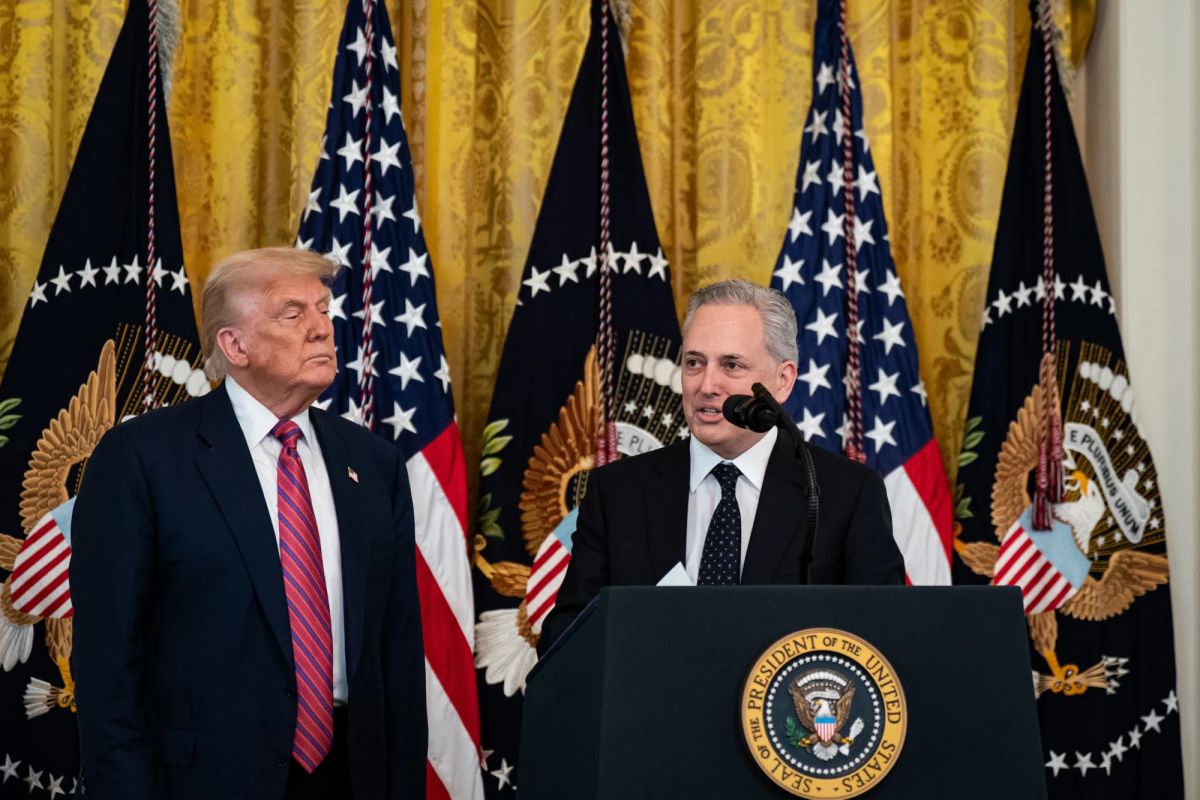White House Unveils AI Action Plan to Accelerate US Dominance

The Trump administration has launched a sweeping AI policy initiative aimed at cementing American technological dominance. 'America's AI Action Plan' outlines over 90 federal actions across three pillars: accelerating innovation, building AI infrastructure, and exporting American AI globally [5][18]. Unveiled July 23, 2025, the plan represents a dramatic shift toward deregulation and private-sector empowerment following President Trump's January executive order [17][47]. Key measures include expediting data center permits, removing ideological bias requirements from federal AI contracts, and creating 'full-stack AI export packages' for allies [5][18]. The administration simultaneously announced $92 billion in AI and energy investments in Pennsylvania, signaling alignment with private initiatives like the $500 billion Stargate project involving OpenAI, Oracle, and SoftBank [1][11][27].
Policy Framework and Industry Alignment
The 28-page plan explicitly targets regulatory barriers hindering AI deployment, directing agencies to review rules in healthcare, finance, and logistics that 'unduly burden AI innovation' [18][48]. A pivotal directive requires federal funding decisions to consider state regulatory environments, effectively penalizing jurisdictions with strict AI laws [18]. This deregulatory push aligns with Silicon Valley priorities, with TechCrunch noting the plan 'reads as if written by Silicon Valley' [17].
Infrastructure Expansion Challenges
While the plan promises accelerated data center construction, the flagship Stargate project faces significant hurdles. Despite January's $500 billion announcement, internal disagreements between OpenAI and SoftBank have stalled progress, with partners now targeting a single Ohio data center by year-end instead of the originally planned nationwide rollout [9][14][16]. Oracle's separate $30 billion annual data center deal with OpenAI suggests fragmentation within the Stargate consortium [10][27]. Elon Musk's skepticism about funding appears validated, with xAI pursuing independent power plant construction to support its GPU clusters [4][55].
Global Competition Dynamics
The export promotion pillar explicitly aims to counter Chinese influence, with Commerce and State Departments ordered to deliver secure AI technology bundles to allies [5]. This comes as Nvidia restarts H20 chip sales in China amid persistent demand, highlighting ongoing supply chain tensions [4]. UK initiatives like AI traffic monitoring cameras demonstrate allied nations' parallel AI deployments, though the US strategy prioritizes vendor dominance over multilateral coordination [4][19].
Corporate Sector Response
The policy shift coincides with transformative industry moves. Capgemini's $3.3 billion acquisition of WNS creates an 'agentic AI powerhouse' targeting autonomous business operations, projected to boost earnings 7% by 2027 [20][22][33][39]. Brookfield's $835 million investment in 5C Group underscores massive capital inflows to AI infrastructure, while Vanta's $150 million cybersecurity raise signals growing compliance demand [7][50].
Energy constraints remain critical, with Oracle Chairman Larry Ellison noting planned data centers would 'consume two Hoover Dams worth of power' [30]. The administration's energy emergency declaration facilitates fossil fuel expansion to meet projected 1,400-1,960MW demands for next-gen AI clusters [16][55]. Public Citizen condemned the strategy as 'prioritizing corporate profits over public safety,' citing environmental and accountability concerns [17][47]. As Atlantic Council experts noted, the plan demonstrates 'unmatched industrial policy ambition' but lacks mechanisms to ensure broad societal benefits [19].
Social Pulse: How X and Reddit View Trump's AI Action Plan
Dominant Opinions
- Pro-Innovation (58%):
- @balajis: 'Finally! Removing DEI requirements from federal AI contracts will unleash real innovation. Meritocracy returns to tech.'
- r/Technology post: 'Deregulating data centers could finally unblock our chip research - this is how we beat China'
- Regulatory Concerns (32%):
- @GaryMarcus: 'Eliminating